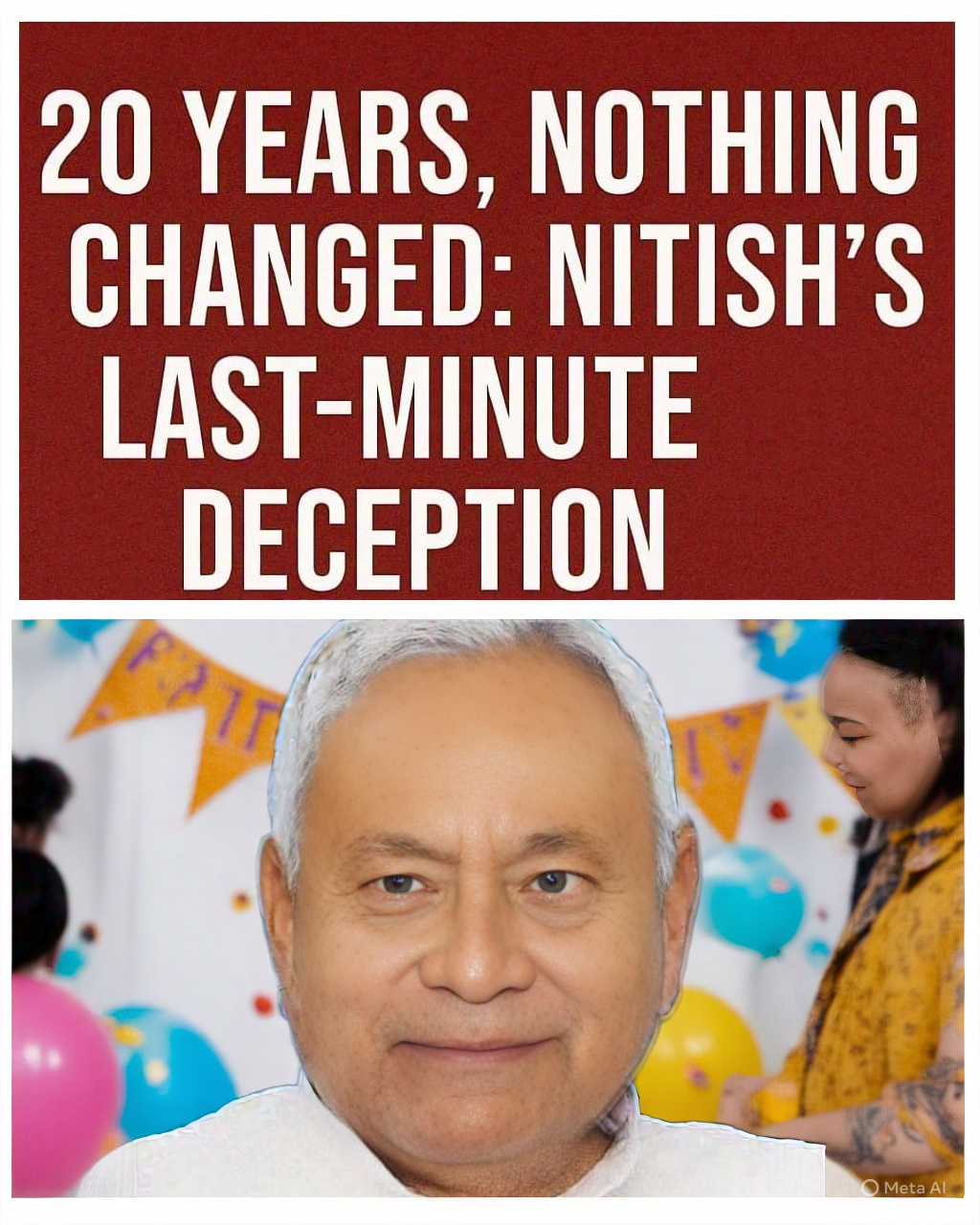
Nitish Kumar has been Chief Minister of Bihar for almost 20 years. In these two decades, he has switched allies, altered his image, and repeatedly promised transformation. Yet, the state remains where it was—at the bottom of India’s development charts. Now, with elections approaching, he has announced that graduate unemployed youth will receive ₹1,000 per month for two years. To the casual observer, it may look like relief. But to anyone who has followed Bihar’s story under Nitish Kumar, it is nothing more than a recycled election gimmick.
Bihar today remains the poorest state in India. The NITI Aayog’s Multidimensional Poverty Index (2021) ranked it as the worst-performing state, with over 51% of its population living in poverty. Despite two decades of Nitish Kumar’s governance, Bihar contributes barely 3% to India’s GDP, despite housing more than 8% of the country’s population. The literacy rate stands at just above 70%, the lowest in India, while unemployment and underemployment drive lakhs of Bihari youth to migrate every year. A 2020 report by the Ministry of Skill Development revealed that over 80% of Bihar’s workforce is employed outside the state, often in low-paying, insecure jobs.
This new “assistance” scheme of ₹1,000 per month for graduates—amounting to ₹12,000 annually—is a pittance against the reality. What future does ₹1,000 secure for an educated youth who spends more than that on commuting to interviews? If implemented sincerely years ago, such a scheme could have been integrated with skill development, entrepreneurship incentives, or job creation programs. But as has been the case with Nitish’s previous announcements, it is designed less for long-term reform and more for short-term electoral gain.
One only has to look at Nitish Kumar’s past promises to see the hollowness of this exercise. The “Saat Nischay” (Seven Resolves) program announced with much fanfare in 2015 was meant to provide better infrastructure, skill training, and employment opportunities. A decade later, most of those schemes exist more on paper than on the ground. Roads remain broken, industries are absent, and the so-called skill development centers have produced negligible employment. Similarly, Bihar’s annual budgetary allocations for higher education and skill programs remain among the lowest in India—hovering around 3% of total expenditure, compared to national averages of 6–8%.
Moreover, this announcement reveals Nitish’s consistent strategy—wait until elections loom, then dangle carrots. The beneficiaries are not expected to see sustainable change but to be softened with immediate handouts. The state government, even today, struggles to fill vacancies in public offices. More than 3.5 lakh posts in various state departments remain unfilled. Instead of addressing structural gaps, Nitish Kumar’s government has chosen tokenism.
The tragedy of Bihar is that its people, many of whom are semi-literate or struggling for survival, are swayed by these gestures. For a family battling to arrange two meals a day, even ₹1,000 looks attractive. But this is precisely what keeps Bihar chained to poverty—the deliberate lowering of expectations by its rulers. Rather than demanding schools that function, industries that employ, or hospitals that heal, voters are distracted with petty allowances that neither build their future nor their dignity.
It must be asked: if Nitish Kumar could not bring industry, employment, or development in twenty years, what credibility does he have in promising support now? Why should anyone believe that in his 21st year, he will deliver what he could not in the previous twenty? The timing of this announcement is telling. It is not born out of empathy for Bihar’s unemployed youth but out of anxiety about losing elections.
Bihar deserves better than this endless cycle of promises and betrayals. Its young population—the very backbone of India’s future economy—should not be placated with handouts but empowered with real opportunities. Nitish Kumar’s “self-help” allowance is not a solution but a symptom of his failure to create jobs, foster industries, or even stop the mass exodus of Biharis.
The truth is stark: Bihar has been used as a stepping stone for political survival. And every election, its people are sold the same dream in a different wrapper. What Nitish Kumar offers today is not hope but proof of two wasted decades.





















